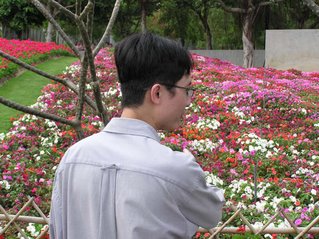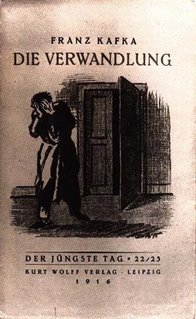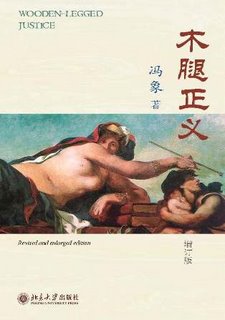標籤:
左冷禪,
法律隨筆

丁蟹:「法官大人,我唔認罪。」
It was on a chilly afternoon immediately after the New Year that倉海君 rang me up and consulted me on how the suspects would be questioned by the police. He was quite anxious to know because a next of kin of his friend was physically assaulted and despite the suspects having been brought to the police station for questioning, none of them were arrested and charged. Even being a very learned person, 倉海君wondered how it could so happen that the suspects could be discharged under the eyes of the victim.
I believe none of you, who have watched innumerable TV programmes since childhood, are unfamiliar with the two golden threads of the English Common Law, namely the right of silence and presumption of innocence.
But very few of you, I suppose, have come to know that citizens in fact have NO obligation to assist the police in their investigation, failing of which will NOT lead to the charge of obstruction to police execution of duty (as one might erroneously think). It is the trite law that nobody is obliged to answer the questions raised by the police. Put it in a nutshell, the charge of obstructing police in execution of their duty could not be laid against a citizen only because he refuses to cooperate by answering a question or following the command. When working as a part-time transcriber at the Eastern Magistracy, I once listened to an audio recording concerning a criminal charge of obstructing the police in execution of their duty being laid against a man when he refused to present his identity card to the police for examination. At the end of the trial, the court ruled the accused, who was subsequently acquitted, could not have obstructed the police in the execution of their duty by mere inaction. Of course the case would be contrary if he escaped or actively deferred or interfered with the police investigation.
Moreover, the law does not impose any obligation on us to let the police into our flat even for the purpose of crime investigation, unless the police is equipped with a search warrant issued by a magistrate. The rationale behind is that our home is our castle and shall be defended against any invaders. Upon the same principle, a suspect does not have the duty to answer questions put by the police. In fact, any prudent criminal should never say a word to the police, because his fate will be doomed by just a slip of his tongue. So even if the assailants involved were caught, the police could do nothing when they refused to “talk”. They could not be compelled to talk by violence or threat of force because any oral/written statement obtained from the suspects involuntarily, either because of their fear of prejudice or hope of advantages as represented by a man of authority i.e. police in our case, will render the evidence inadmissible. And unless the police had already collected sufficient evidence to bring charges against them, they had to be released. Furthermore there are the Rules and Directions on the Questioning of Suspect, previously known as the Judges’ Rules, that regulates the mode and manner in which the suspect is interrogated. With reference to Bruce & McCoy on Criminal Evidence (2nd ed), any breach of the said rule may not necessarily result in the evidence becoming inadmissible, so much so it only affects the weight attached to the evidence at the judge’s discretion. But I believe that situation would be otherwise if the breach is so serious that it amounts to sapping the mind of the suspect during the questioning process and accordingly leads to the rise of suspicion on whether the evidence or confession is given by the suspect involuntarily, the evidence concerned should then be ruled as inadmissible by the judge in a voir dire (voir dire is a mini trial on the admissibility of any evidence that are challenged by the defence and should be held before the prosecution case is opened, or the jury empanelled).
This nice piece of common law maxim even endows an accused with the right to remain silent in court, as he may choose not to give evidence in the witness-box. And the judge could not draw negative inference from his silence in court according to the judgment of R v Gilbert (1978) 66 Cr App R 237.
Even if the accused goes into the box, he is not obliged and will surely be warned by the judge not to answer questions put forward by the prosecution that would incriminate himself as he is under the protection shield of the privilege against self-incrimination. It is my surmise that any admission of self-incriminatory evidence resulting from the judge’s failure to warn the accused, may become a good ground for appeal or re-trial be ordered.
The presumption of innocence is, in my view, the origin of the right of silence since everyone is presumed to be innocent until proven, an accused does not need to say anything to defend himself. The legal and evidential burden throughout the trial rests on the prosecution and it is their duty to prove the defendant’s guilt beyond reasonable doubt which is the standard of proof for criminal trial as per Woolmington v DPP [1935] AC. This common law principle is further entrenched by article 11(1) of the Bill of Rights Ordinance that says “everyone charged with a criminal offence shall have the right to be presumed innocent until proved guilty according to law”.
However, there are some exceptions in which
once the prosecution has discharged their burden of proof by establishing a prima facie case against the accused, the legal burden would shift to the accused in adducing evidence to disapprove the prosecution’s case against him. He no longer enjoys the right of silence unless he wants to have a taste of prison life. This situation occurs when the accused is charged of an offence of strict liability, i.e. possession of offensive weapons or dangerous drugs, corruption, secondary copyright infringement, where the accused may plead the statutory defence (usually provided in the ordinance) of his having a honest and reasonable belief that he is not committing the offence at the material times. In Attorney General of Hong Kong v Li Kwong-kut (1993) 3 HKPLR, the Court of Appeal, while affirmed the presumption of innocence, reasoned (1) when on face of the proved facts, it is safe to draw a presumption that it is more likely than not the accused has committed the offence charged [a presumption], (2) the offence in question is of great social evil that the degree of the reversion of the burden of proof is proportionate to the public interest, and (3) it is too difficult for the police or prosecution to collect evidence and be borne with the usual criminal burden of proof [in proving the accused’s state of mind or mens rea], it is thus justifiable to revert the burden of proof to the accused in some exceptional cases. Another kind of criminal offence which requires no mens rea of the accused at all and probably offers no defence to the accused, is that of absolute liability, i.e. not wearing seat belts, spitting.
Surely some of you may think many criminals are able to evade liability by the reliance of the above rules, but is it not in the same way that many innocent parties are immune from being incriminated by the use of unjust and illegal means? While it is important that justice has to be done, it is never negligible for justice to be ensured by procedures and principles, however rigid they are.
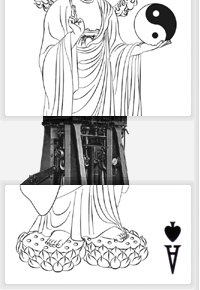

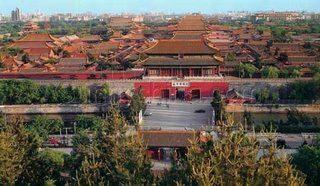




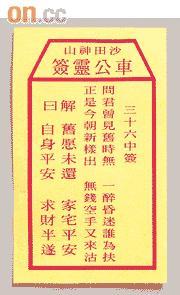

 院風波,「唔理證供有冇疑點,被告一定食晒,但由胡法官做調查,除非證供毫無疑點,否則要胡官信納,根本好難。」這樣調查,可以查到甚麼結果?再加上主席胡國興是政府最信賴的人,政府最難纏的「敵人」公民黨有一個「死穴」,就是從不罵法官,以免破壞司法獨立,煲呔如此處處「算到盡」,最終查到甚麼?政圈中人,心知肚明。
院風波,「唔理證供有冇疑點,被告一定食晒,但由胡法官做調查,除非證供毫無疑點,否則要胡官信納,根本好難。」這樣調查,可以查到甚麼結果?再加上主席胡國興是政府最信賴的人,政府最難纏的「敵人」公民黨有一個「死穴」,就是從不罵法官,以免破壞司法獨立,煲呔如此處處「算到盡」,最終查到甚麼?政圈中人,心知肚明。




